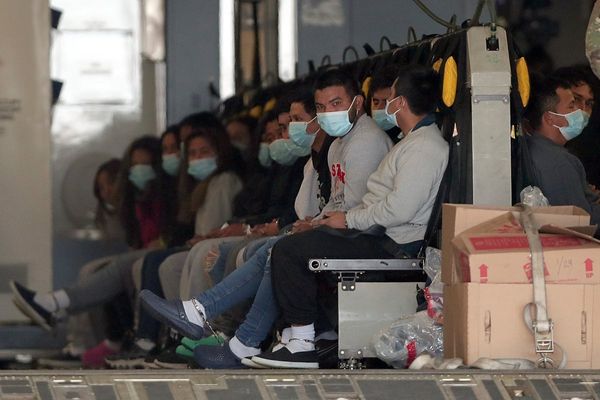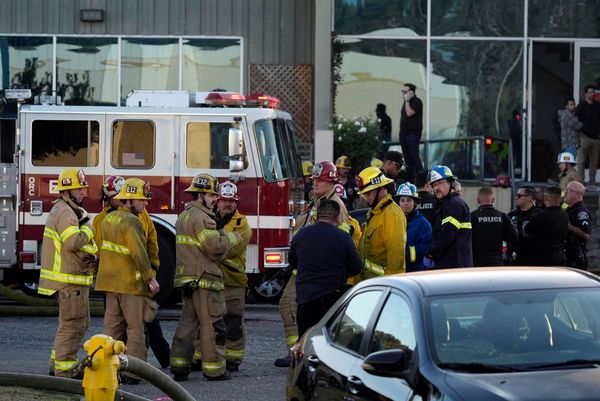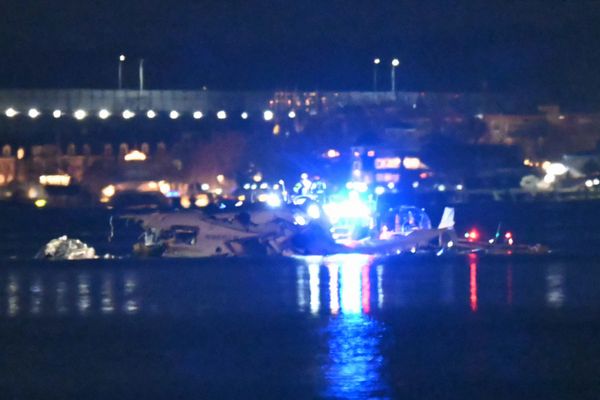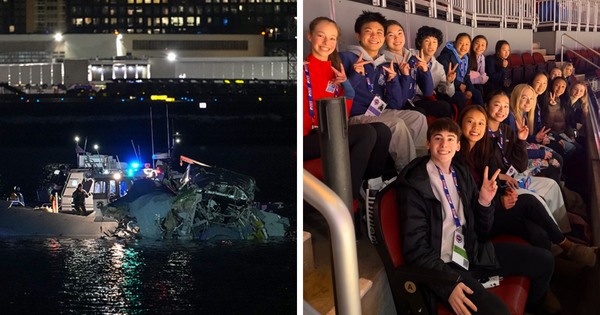
Australian Parliament security officials were under “significant pressure” when they made the “real-time decision” to seize a bag of books from family members of Julian Assange during a visit in August to federal Parliament, a new document reveals.
The secretary of the Department of Parliamentary Services wrote in a letter to Greens Senator David Shoebridge that the books were seized because they were related to a protest. However, a spokeswoman for the department acknowledged on Monday that this was incorrect.
In the letter, the department secretary, Rob Stefanic, said the books were seized because they were identified as material related to a “Free Assange” protest apparently held outside the building on August 4.
But Assange’s brother Gabriel Shipton told Crikey he and his father did not attend any protests that day.
After Crikey inquired about the inconsistency, the department checked its records and concluded the claim about the protest was wrong.
“It is apparent that there are factual inaccuracies in the letter to Senator Shoebridge and the secretary will be writing to him to correct the record,” the spokeswoman said.
“A review of incident reporting and fact verification procedures will be immediately undertaken to ensure accuracy in future.”
In his letter, Stefanic wrote that the security staff who refused to let the pair bring the books into Parliament were unaware they were dealing with Assange’s brother and father and did nothing wrong in seizing the items.
“I appreciate that Assange’s family may not have viewed the screening procedure in a positive light, but having reviewed the processes followed by security staff, I am confident they performed their duties with respect and due diligence,” Stefanic wrote in response to questions from Shoebridge.
Assange’s father, John Shipton, and brother Gabriel visited Parliament on August 4 to meet with MPs.
At the security gate, they were stopped by security staff who refused to let them bring in a tote bag with copies of a book on Assange’s case written by ex-United Nations special rapporteur on torture Nils Melzer.
At the time, the Department of Parliamentary Services told Guardian Australia it could not comment on “specific operational security matters”.
But in response to a letter from Shoebridge, which was addressed to Parliament’s presiding officers and forwarded to Stefanic, the security guards’ motivations were laid bare for the first time.
The letter was dated September 20 and released by Shoebridge’s office at the weekend.
Stefanic wrote that staff noticed during a security screening at the public entrance that the men carried a tote bag containing copies of Melzer’s The Trial of Julian Assange: A Story of Persecution.
According to the secretary, the security guards had identified the Shiptons as members of a “group of people who had participated in an approved ‘Free Assange’ protest”.
“The tote bag referenced the Free Assange protest, so the security officers on duty made a judgment that the tote bag and its contents be temporarily held at the screening point,” Stefanic wrote.
“Please understand that protests are a regular feature at Parliament House and our security staff experience significant pressure to make decisions in real time.
“At the time of the security screening, staff were unaware that the party comprised family members of Julian Assange or their intent when the material was identified as related to the protest.”
However, Gabriel Shipton said he and his father were unaware of any protests at Parliament that day.
“There was no protest that day,” he said. “We were there to meet an MP. They’re framing it as if there was a protest outside and there were people coming back and forth with all this protest stuff, which is just not true.
“It just seems like an overzealous, arbitrary decision by someone who might not have agreed with the contents of the book.”
Stefanic said the security staff were tasked with upholding “dignity and decorum” within the building, but not to make judgments on issues of freedom of speech. He said it was wrong to say the books were “confiscated” because security allowed staff members from an MP’s office to come and collect the books shortly afterwards.
Shoebridge said the incident was an affront to freedom of speech. “We have a serious problem in Parliament when books are being confiscated as protest material, and then when it is called out the most senior officers in Parliament defend the practice,” he told Crikey.
“Refusing to allow these books into Parliament was plainly wrong. The Parliament needs to hear uncomfortable truths and that can’t happen if there are censors at the doors.
“It’s deeply concerning that the presiding officers see nothing wrong with this.”
Stefanic’s letter comes as supporters of Assange have gathered at the weekend across the world to demand his release.
The 51-year-old Australian — who is facing extradition to the United States over alleged espionage offences related to his work with whistleblowing website WikiLeaks — is being held in London’s Belmarsh Prison.
Gabriel Shipton said the demonstrations in London and abroad had lifted Assange’s spirits. “He’s in high spirits at the moment, hearing about the turnout, but he’s in a period of decline,” Shipton said. “The situation is really taking its toll.”
He said he hoped the Albanese government would do more than the quiet diplomacy the prime minister has promised since taking office.
“Obviously, we were sort of encouraged by the statements before the election from the government, and now it doesn’t seem like anything is happening,” he said. “It’s been more than 100 days now since the government has been in power, and they haven’t made a public call for his release.”







